astronaut
Latest
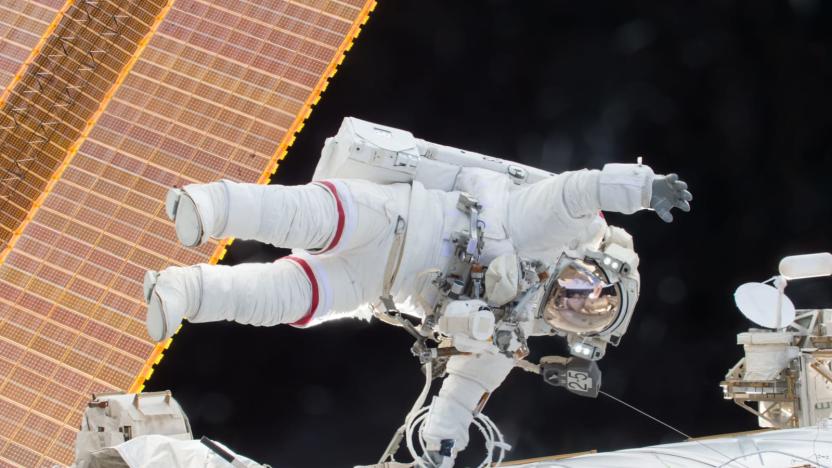
The first all-female spacewalk takes place March 29th
After several decades of human spaceflight, you're finally going to see the first all-female spacewalk. NASA has confirmed that astronauts Anne McClain and Christina Koch will venture outside the International Space Station on March 29th. This wasn't intentional, the agency told Axios -- it just so happened that the particular crew aboard the ISS led to the team-up. If you've been following the progression of the space program, however, it might not be quite such a surprise.
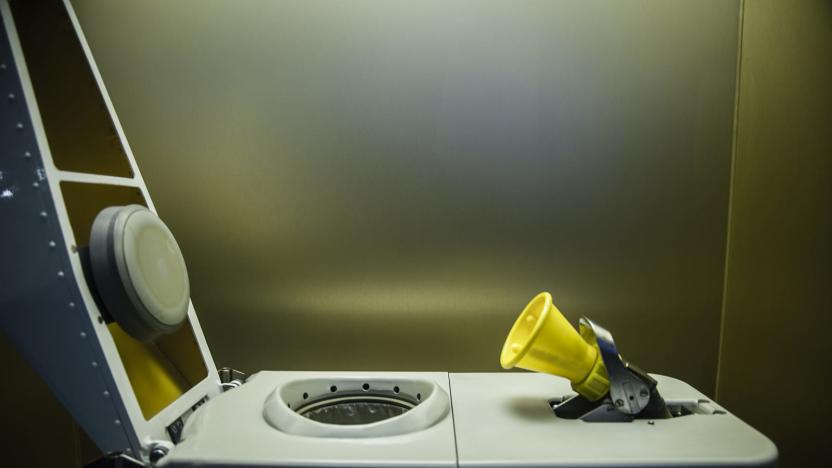
ISS toilet leak dumps two gallons of 'water' on crew
If you think a burst toilet is bad news on Earth, spare a thought for the astronauts who have to deal with it in zero gravity. That's what the poor American souls on the ISS were left grappling with last week when their $19 million commode leaked, according to a NASA status report. Around 9.5 litres of water spilled out as a result of the, um, accident. The crew had to clean it up using towels while working to fix the leak, claimed the space agency.
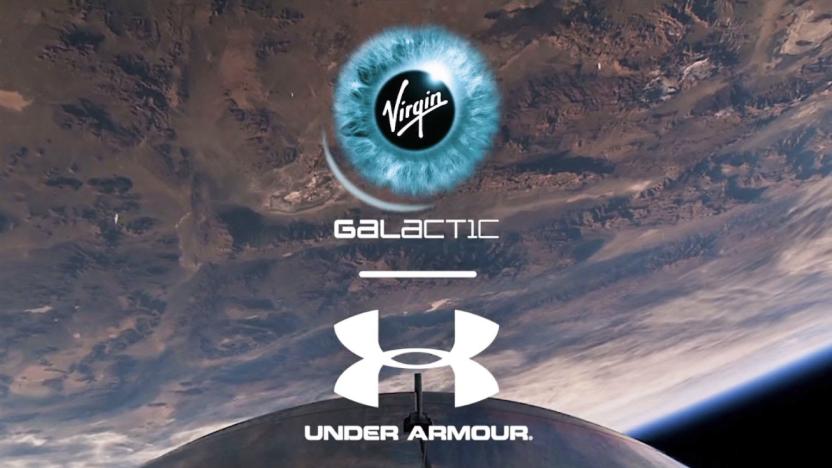
Under Armour will make the space suits for Virgin Galactic flights
When Virgin Galactic sends people to space, it plans to send them style. The privacy aerospace company announced today that Under Armour will be designing and producing the space suits and footwear that will be worn by passengers and pilots during future commercial trips to space. The apparel company will also create physical training programs for astronauts to undergo in preparation for the flights.

Astronauts aboard Soyuz spacecraft arrive safely at the ISS
The three crew members aboard the Soyuz MS-11 spacecraft have safely arrived at the International Space Station after launching from Kazakhstan earlier today. Anne McClain of NASA, David Saint-Jacques of the Canadian Space Agency and Oleg Kononenko of Roscosmos are all getting settled on board the ISS following a six-hour journey. This was the first crewed launch of a Soyuz rocket since an equipment malfunction caused astronaut Nick Hague and cosmonaut Alexey Ovchinin to abort their launch and engage an emergency landing in October.
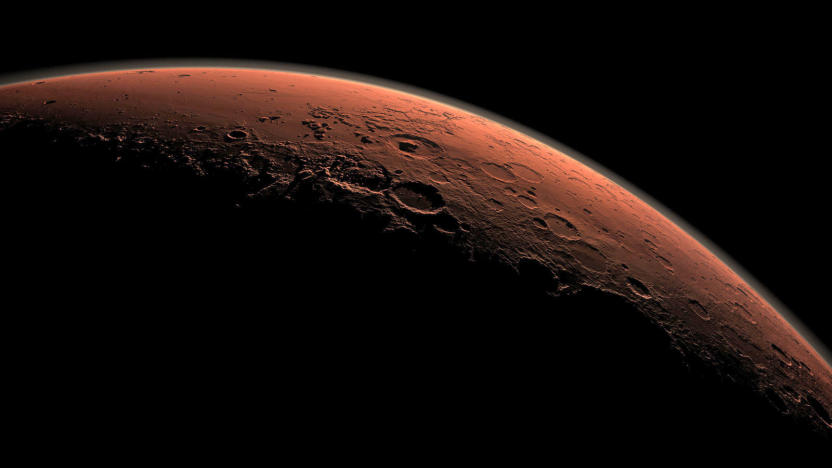
Mars trips may involve less radiation exposure than previously thought
There's no question that the first human mission to Mars will be extremely dangerous. Some studies have suggested that the radiation levels would exceed the maximum career dose for a given astronaut, greatly increasing the risk of cancer and other illnesses. It might not be quite so bad as it sounds, though. Newly presented ESA ExoMars orbiter data indicates that astronauts would receive "at least" 60 percent of their maximum recommended career radiation exposure on a round trip to Mars that takes six months both ways. That's still several times what ISS crew members receive, but it's relatively gentle compared to what some had feared.

NASA's public CO2 challenge could help astronauts endure on Mars
NASA would really prefer that Mars astronauts produce their materials on Mars, but that's not so easy when resources we take for granted on Earth are hard to get on the Red Planet. The administration has an idea as to how it might accomplish that feat, though -- and it wants your help. It's launching a CO2 Conversion Challenge that asks the public to find ways to turn carbon dioxide into compounds that would be useful on Mars, where the substance is plentiful.
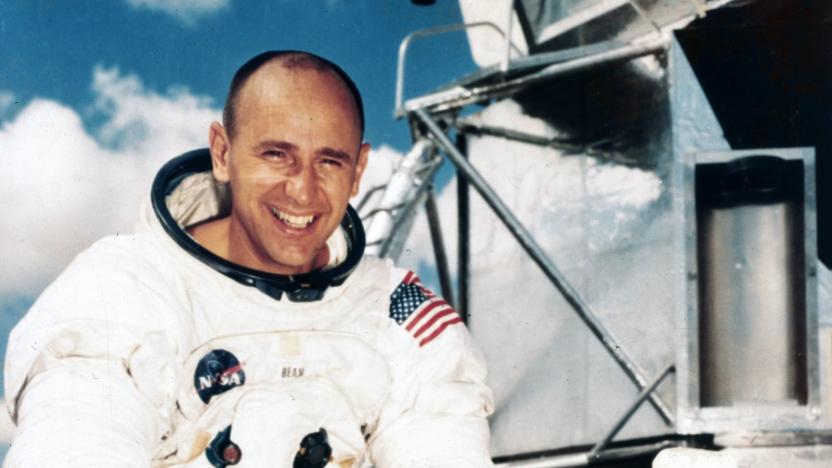
Apollo 12 astronaut Alan Bean dies
It's a somber day for spaceflight, as NASA astronaut Alan Bean has died at the age of 86 after falling ill during a trip. He was the fourth person to walk on the Moon, flying aboard Apollo 12, and proved crucial to humanity's understanding of its closest celestial neighbor. He was the only geologist to have walked on the Moon and provided an immensely valuable collection of samples that inform lunar geology to this day. He also led the second of three Skylab crews, staying a then record-setting 59 days as he survayed both the Earth's resources and the Sun.
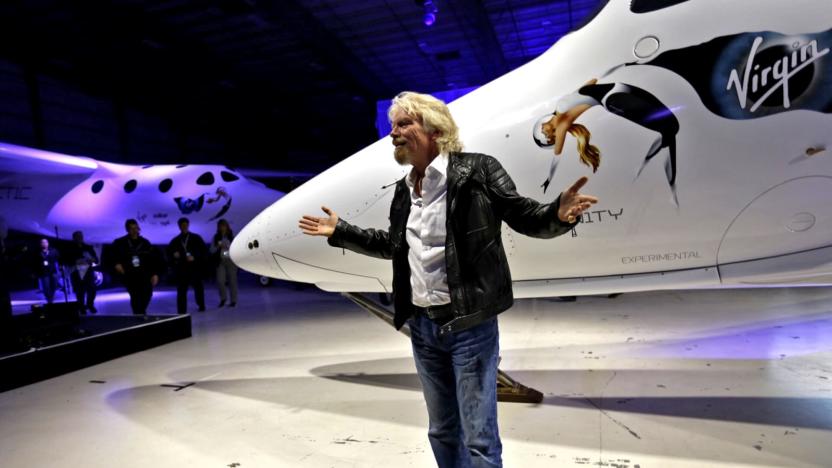
Richard Branson plans to visit space in 'months'
It's no secret that Richard Branson would like to go to space aboard Virgin Galactic's ships. However, it's now clear that he's eager to hasten the process. The tycoon told BBC Radio 4 that he expects his flight to be "months away, not years away," and that he's going through astronaut and fitness training to be sure he's ready. Just when that happens isn't clear (Branson has been optimistic about Virgin's timeline the past), but it's a more realistic claim now that powered VSS Unity tests are underway.

Drug could prevent memory loss in deep space astronauts
Cosmic radiation is one of the greatest threats to astronauts embarking on deep space missions, not the least of which is the effect on the brain: it could hinder your memory and destroy vital synapses. Thankfully, you might only need to take some pills. UCSF researchers have discovered that a drug from Plexxikon potentially prevents memory problems from cosmic radiation. Tests on mice show that the medicine forces the brain to replace irradiated immune system cells (microglia) with healthy examples, preventing inflammation that could damage memory functions.
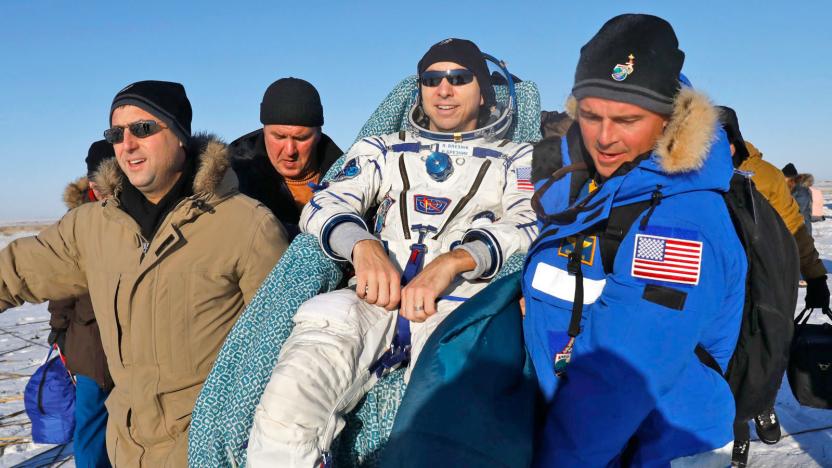
NASA tests treatment that could slow astronauts’ muscle loss
Even though astronauts exercise everyday while they're aboard the International Space Station (ISS), they still experience a fairly significant loss of muscle mass. So much so that they require physiotherapy once they return to Earth. However, researchers with the Houston Methodist Research Institute and the Novartis Institute for Biomedical Research are testing a device that can continuously administer a medicine that may help prevent muscle deterioration, Seeker reports. The team sent 40 mice to the ISS in December, some with devices that deliver the drug and some with devices that just deliver an inactive solution. Half returned to Earth in January and the other half will do so this month.
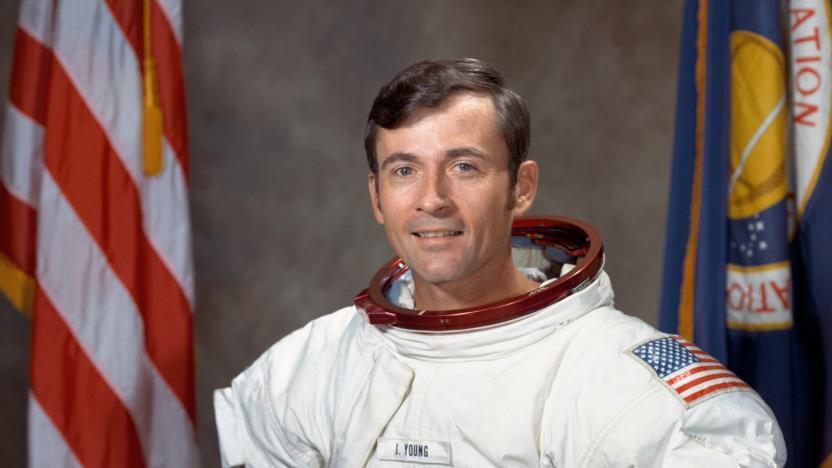
Original Space Shuttle commander John Young dies
Spaceflight just lost one of its better-known icons: NASA astronaut John Young has died at the age of 87. He was best known as the commander of the first Space Shuttle mission, taking Columbia into orbit in 1981. However, that was just one of a series of achievements. He flew on the first manned flight of the Gemini spacecraft in 1965 (and led a flight in 1966), traveled to the Moon twice (including a moonwalk during Apollo 16) and played a key role in the rescue of Apollo 13 by helping to stretch out its resources. On his record-setting sixth and last spaceflight, when he flew the first Spacelab module into orbit aboard the Space Shuttle, he both avoided a mid-flight disaster and landed while an auxiliary power unit was on fire.

Spacesuit 'take me home' feature could save lost astronauts
The greatest fear for many astronauts is to get lost or disoriented during a spacewalk, especially if it's untethered. How do you get back to safety with no sense of direction, little to no help and a limited supply of oxygen? Researchers at Draper might offer a lifeline. They recently applied for a patent on a self-return feature in spacesuits that would automatically navigate back to the astronaut's home ship. A spacefarer in a panic could just slap a button and know they would get back to the airlock.
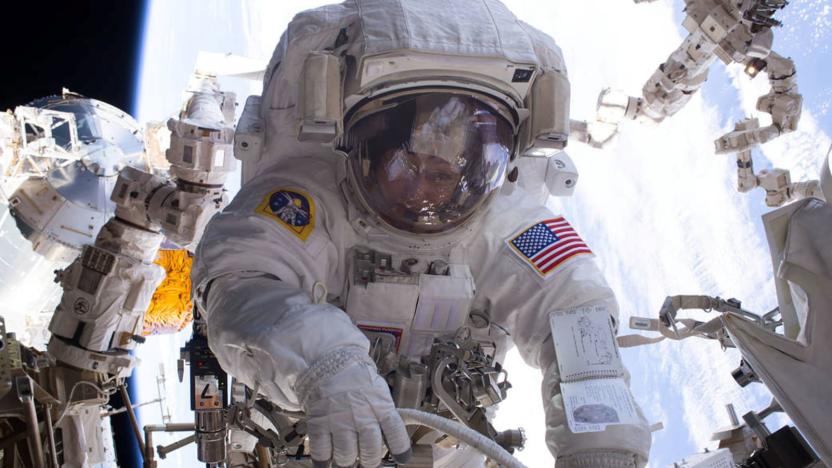
Watch record-setting astronaut Peggy Whitson's return to Earth
NASA astronaut Dr. Peggy Whitson has broken more than one record for time spent in space, but now she's ready to come home. Whitson, fellow American astronaut Jack Fischer and Russia's Fyodor Yurchikhin are leaving the International Space Station to return to Earth, and NASA is livestreaming the whole thing starting today (September 2nd) at 2:15PM Eastern. It'll start with a farewell and closing the hatch on the Soyuz spacecraft taking them back to terra firma, but don't worry if you're not there the minute it starts -- the vessel won't start undocking until 5:30PM, and the deorbiting burn takes place at 8PM with an expected landing at 9:22PM.

Researchers want astronauts to put their biological waste to work
Researchers at Clemson University are presenting work at the National Meeting and Exposition of the American Chemical Society that could change how astronauts handle waste in the future. For long trips -- to Mars, for instance -- astronauts will need to maximize the utility of everything they bring on board. Extra weight means more fuel is required, so keeping stocks low while being able to recycle waste into something useful is going to be necessary for these sorts of trips. "If astronauts are going to make journeys that span several years, we'll need to find a way to reuse and recycle everything they bring with them," Mark Blenner, one of the researchers on the project told Phys.org. "Atom economy will become really important."
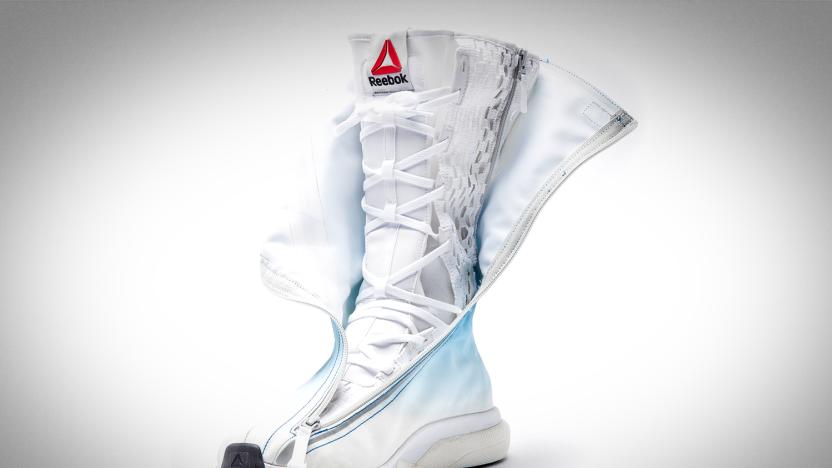
Reebok’s new foam space boots bring comfy kicks to astronauts
Whether it's using corn to make sustainable sneakers, or 3D printing some pretty out there looking footwear, Reebok isn't afraid of taking bold new steps with its shoes. Now, however, it looks like the brand has decided to take one giant leap for mankind. On Tuesday, Rebook revealed that it's developing a new type of shoe for an upcoming mission to the International Space Station. Christened The Floatride Space Boot SB-01, Reebok's latest is looking to replace the tough and tragically uncool leather boots that have cramped astronauts' feet (and style) for years.

China starts 200-day simulation of living on another planet
The US definitely doesn't have a monopoly on long-term simulations of living on another planet. Four university students in Beijing have begun a 200-day isolation experiment, Lunar Palace 365 (why not Lunar Palace 200?), where they'll live solely on the resources they would have on the Moon or Mars. That means generating life-giving oxygen from plants, recycling urine to produce drinking water and otherwise making the most of limited supplies.
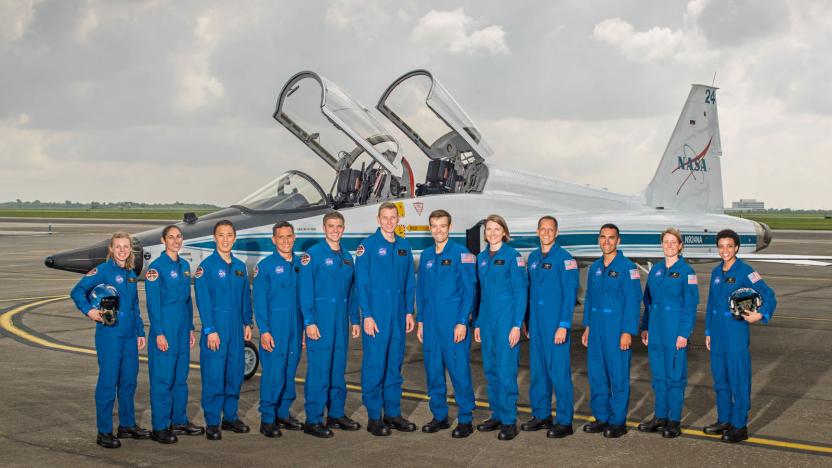
NASA selects new class of astronauts for future exploration
The next astronaut to break Peggy Whitson's spacewalk record could be in the group NASA just announced. The 22nd class of spacewalkers consists of 12 individuals hailing from all over the US. They include nuclear, mechanical and aerospace engineers, antarctic-exploring biologists, test pilots, Navy SEAL medics, Army and Marine helicopter pilots, NASA JPL scientists and SpaceX employees.
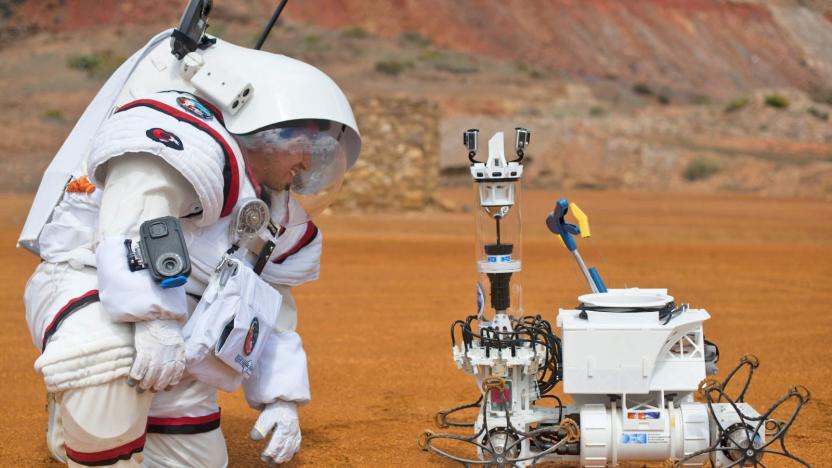
Mars astronauts at greater risk of cancer than previously thought
You might not want to book that trip to Mars just yet. Researchers have published a study estimating that the risk of cancer from cosmic rays is twice as high as previously thought. They've determined that conventional risk models are incomplete. While NASA and other groups believe that radiation-based cancer stems only from direct cell damage and mutations, the new model accounts for the possibility that heavily damaged cells will increase the cancer risk for "bystander" cells. There's a knock-on effect that would be difficult to escape.

Watch NASA's first 4K broadcast from space on April 26th
If you've ever wanted to see Earth orbit in stunningly real high-def, here's your chance. On Wednesday, April 26th, you can watch the first 4K livestream from the International Space Station 250 miles above the Earth. Commander Peggy Whitson will speak as part of a panel called "Reaching for the Stars: Connecting to the Future with NASA and Hollywood." While we've seen 4K video from space before, this is the first time it will be live. You'll need a 4K-capable television or monitor to see the full resolution, of course, but there will also be lower-resolution streams on NASA Television as well as the agency's Facebook page and website.

Watch as NASA lays John Glenn to rest on Thursday
Astronaut and four-term US senator from Ohio, John Glenn, will be buried at Arlington Cemetery tomorrow, April 6th at 9 AM ET. The ceremony will air live on NASA TV to honor the first American to orbit the earth. The US Marine Corps will also webcast the event on its Defense Video Imagery Distribution System.






